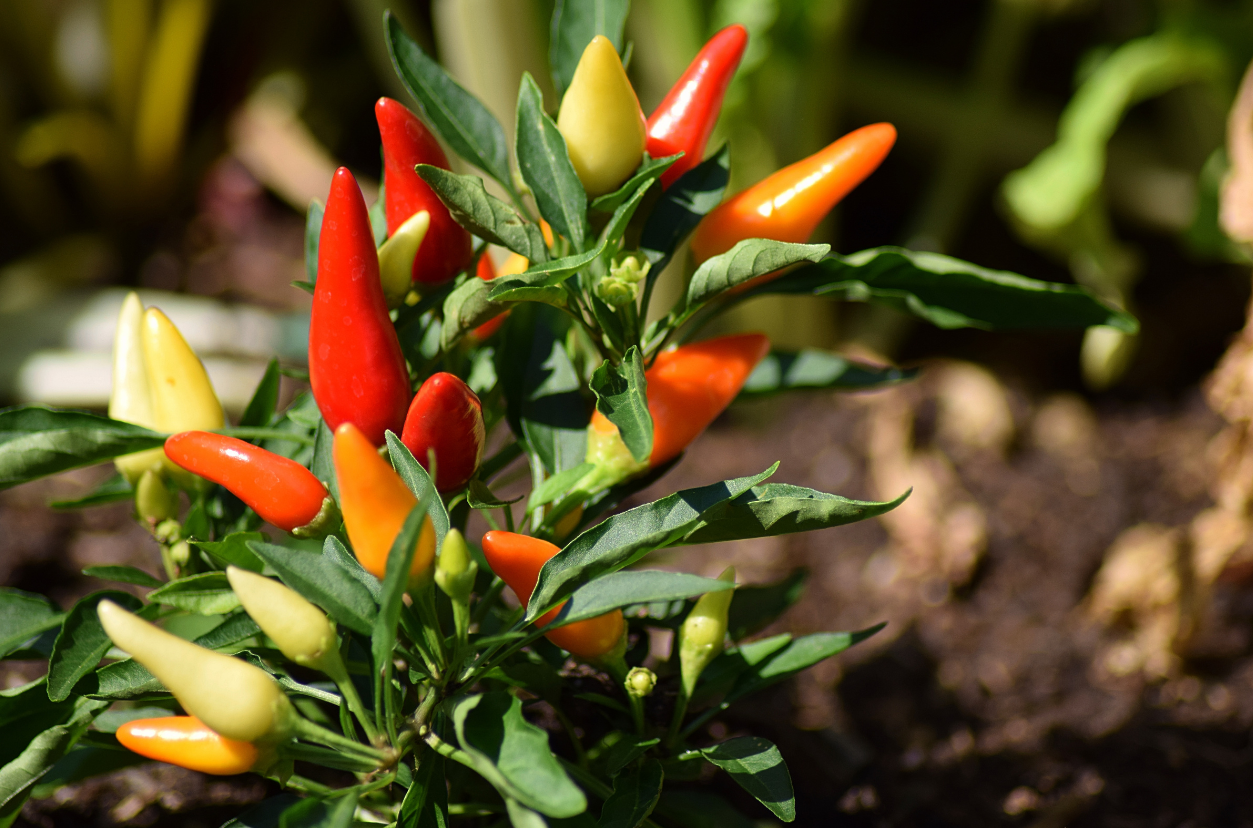Top-Rated Fertilizers for Peppers: Improve Your Harvest Top Quality
Top-Rated Fertilizers for Peppers: Improve Your Harvest Top Quality
Blog Article
Organic Vs. Synthetic Fertilizers: Which Is Best for Nurturing Healthy Pepper Plants?
In the world of supporting healthy pepper plants, the choice between artificial and natural plant foods stands as an essential decision with far-ranging ramifications. While both choices objective to offer necessary nutrients to support plant development, the nuances of their influence on the soil, plant wellness, and the environment stimulate an argument that mirrors throughout the gardening community. Comprehending the distinct benefits and prospective mistakes of each plant food type is crucial for pepper cultivators seeking to maximize their yields while preserving a lasting and eco-conscious technique.
Advantages of Organic Fertilizers
Organic fertilizers offer a sustainable and environmentally-friendly technique to nourishing pepper plants, providing important nutrients without using synthetic chemicals. These all-natural fertilizers are originated from organic resources such as garden compost, manure, bone dish, and seaweed, promoting dirt health and biodiversity. Unlike artificial fertilizers, natural options release nutrients slowly, making sure a constant and balanced supply for pepper plants to grow.
One substantial benefit of natural plant foods is their capacity to improve dirt framework and water retention. By improving dirt wellness, organic fertilizers advertise useful microbial activity, which assists in nutrient uptake by pepper plants. Furthermore, organic plant foods decrease the threat of chemical run-off, shielding water resources from contamination and safeguarding the setting.
Furthermore, natural fertilizers add to long-lasting dirt fertility by advertising the growth of valuable soil organisms. These microorganisms help break down raw material, releasing nutrients in a form that is easily obtainable to pepper plants. best fertilizers for peppers. By fostering a healthy and balanced soil ecological community, natural plant foods support lasting pepper growing techniques that profit both plants and the atmosphere
Downsides of Synthetic Fertilizers
Synthetic fertilizers, in comparison to their organic counterparts, posture numerous negative aspects when utilized to nurture pepper plants, affecting both plant health and environmental sustainability. One major downside of synthetic fertilizers is their tendency to leach nutrients from the dirt swiftly.
Furthermore, the overuse of synthetic plant foods can add to water air pollution. Excess fertilizers not taken in by plants can remove into water bodies, bring about eutrophication, where algae flowers diminish oxygen levels in the water, damaging aquatic life. Additionally, synthetic fertilizers are normally stemmed from non-renewable sources, such as nonrenewable fuel sources, adding to carbon discharges and environmental deterioration throughout their production.
Nutrient Absorption Comparison
When contrasting artificial and natural plant foods in terms of nutrient absorption, natural plant foods have the benefit of supplying an extra balanced and slow-release resource of nutrients. Organic fertilizers contain a variety of macro and trace elements that are not just valuable for the plants however also promote healthy and balanced soil microbial activity, which aids in nutrient uptake.
Furthermore, organic fertilizers boost soil structure and water retention capability, permitting pepper plants to gain visite site access to nutrients extra effectively. This improved dirt top quality facilitates root growth, allowing better nutrient absorption. Artificial plant foods, although initially enhancing plant development as a result of their high nutrient focus, may hinder long-term nutrient absorption by degrading dirt health in time.
Environmental Influence Considerations

On the other hand, synthetic plant foods, although often more concentrated and right away offered to plants, can have detrimental impacts on the environment if not used effectively (best fertilizers for peppers). Their production requires high power inputs, resulting in greenhouse gas emissions and adding to environment adjustment. The drainage of excess artificial plant foods can contaminate water resources, leading to eutrophication and damaging aquatic communities.
Ideal Plant Food Practices for Peppers
When feeding pepper plants, optimizing nutrient uptake and minimizing ecological effect are vital factors to consider. To achieve this, it is vital to follow ideal plant food practices customized to the particular demands of pepper plants. One essential practice is to perform a soil examination before applying any type of fertilizers. This examination can figure out the pH degree of the dirt and determine any nutrient deficiencies, directing you in choosing one of the most suitable plant food formula.
Another essential technique is to fertilize pepper plants at the correct time. Generally, peppers take advantage of obtaining plant food at planting and afterwards once again when they begin to flower. Over-fertilizing can bring about nutrient discrepancies and hurt the plants, so it is essential to comply with suggested application prices.
In addition, picking a balanced plant food with an NPK ratio that matches pepper plants' requirements is essential. Organic plant redirected here foods, such as compost or manure, can be superb options as they release nutrients gradually and enhance soil structure over time. Nonetheless, artificial fertilizers can give a fast nutrient boost when required. Eventually, click here to find out more integrating organic and synthetic fertilizers deliberately can aid support healthy and balanced pepper plants while reducing environmental influence.
Verdict

Organic plant foods offer an environmentally-friendly and sustainable strategy to nourishing pepper plants, supplying important nutrients without the use of synthetic chemicals. Unlike artificial fertilizers, natural options release nutrients slowly, making certain a balanced and constant supply for pepper plants to prosper.
Synthetic fertilizers, in comparison to their natural equivalents, present various disadvantages when used to nurture pepper plants, affecting both plant health and environmental sustainability. When contrasting organic and artificial plant foods in terms of nutrient absorption, organic plant foods have the advantage of offering an extra balanced and slow-release resource of nutrients.Additionally, natural plant foods improve dirt framework and water retention capability, enabling pepper plants to accessibility nutrients a lot more efficiently.
Report this page